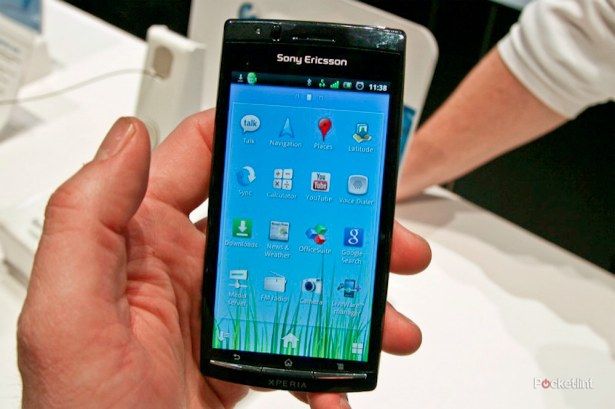Sony Ericsson has confirmed that it will continue to put its weight behind Google’s Android operating system, although it says that it's still keeping the door open to Microsoft and its Windows Phone 7 mobile phone system.
“We are keeping a watching brief”, Steven Walker, acting head of global marketing at Sony Ericsson told Pocket-lint in a one-to-one interview at CES in Las Vegas.
“We've done a lot of work with Microsoft over the years. We’ve launched a number of 6.xx products, but we made a decision not to bring a product to market in the first wave. We absolutely maintain to keep an open mind towards Windows Phone 7. We continue to engage in a relationship with Microsoft, but we haven’t made any concrete announcement about when and how we would introduce Windows Phone 7 into the portfolio”.
Walker says that Sony Ericsson is instead focusing on Android, galvanising behind the OS to create a strong ecosystem for consumers:
“We do think it’s important at this moment in time to focus our external messaging on Android based products. We see the need as an industry to galvanise behind the Android ecosystem to create a strong ecosystem for consumers”.
Why? Walker says the answer is simple:
“We need to do this so that there will only be a certain number of eco-systems that will prevail. Developers won’t develop for 17 eco-systems. Consumers won’t choose between 100 different eco-systems. In the end only a certain number will prevail”.
But it’s not going to be Android and only Android; like Motorola, Walker does acknowledge that the company will have to embrace other operating systems in the future:
“We shouldn’t limit ourselves to one opportunity, but we aren’t yet ready to make any specific announcement about products. At this moment in time, there is clearly a galvanising within the industry around Android as a creditable alternative to what’s out there, and we think that’s a good thing”.
When asked as to whether he was worried about a possible fragmentation of the Android OS occurring, Walker was confident that Google will sort out the main issue currently on the minds of most high-end Android users: which version are they running?
“Of course some people care. In the higher end of the market the spec savvy consumers do. If you take the broad church of Android users there will be a big chunk of people that don’t care, there will be people that upgrade and don’t notice. I do think that the release thing is an issue of this particular moment. I think once Android becomes a much more accepted part of the market overall I think the release itself will become a less critical part of the whole solution. Right now there is a lot of focus on what release of Android it is on. It’s the first question people ask “which version of Android is it on”, but in a year’s time I don’t think it will be the first question people ask, it will be in the list of questions but it won’t be the first question”.
So does that mean only new phones with the latest versions of the OS? It looks likely:
“That said we are launching a product in Q1 of this year running 2.3, we have recognised the need to have our products on the latest release. Last year we didn’t anticipate the strength of feeling that consumers would have towards the Android release. And again that was a learning experience of the first year of mass market Android smartphones”.

